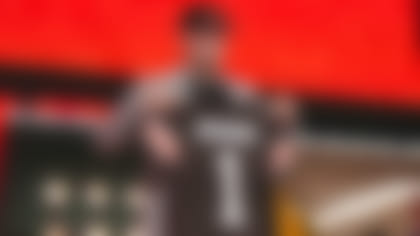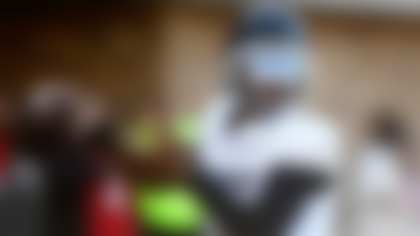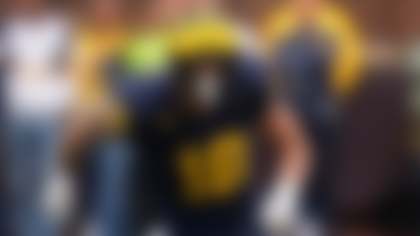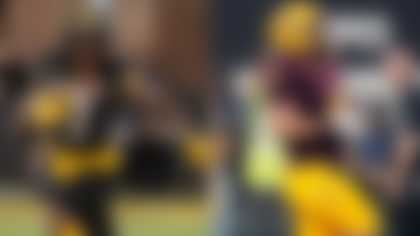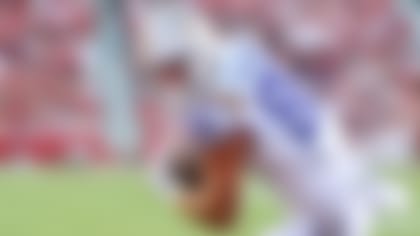When Deacon Jones passed away, the football world lost a great, great pass rusher who was light years ahead of his time.
I saw him a lot when I worked for the Dallas Cowboys, because we used to scrimmage with Deacon's Los Angeles Rams. He was a big talker, but he produced. One of the most significant things about him was that he was so fast. He probably could run the 40-yard dash in about 4.5 seconds in an era when it was unheard of to have defensive ends run that fast. It was unbelievable.
He really changed the profile of what you were looking for in a defensive end. In that way, Deacon Jones was to football what LeBron James has been to basketball.
He wasn't real big; probably 245 pounds, if that. We'd been used to having such big, lumbering guys, so to speak, slow guys at that position. Deacon just brought a whole new dimension to rushing the passer and making plays from the back side. He had such great get-off, like a world-class sprinter.
But don't take my word for it. Here's what a former Dallas Cowboys player, Rayfield Wright, has to say about lining up against Deacon Jones in his first start as an offensive lineman (after spending a few seasons bouncing around at different positions):
"The first thing that came to my mind when I found out that that's who I had to face in L.A. was fear," Wright said. "Fear kind of took me over a little bit in practice. ... I never will forget the first play in that game.
"I'm looking at him square in his eyes ... (and) I remember him asking me if my mother knew I was out on the field. It kind of put me in a position whereby I just froze, because I couldn't figure out why he was asking (that question)."
Wright said he lost his focus -- and the snap count -- and Jones burst across the line and knocked him down. He rolled over on his back and looked toward coach Tom Landry, expecting to be pulled from the game. But he wasn't.
"I said, 'Lord, I'm in this one by myself,' " Wright recalled.
"Then, after the play was over, he reached his arm down and made another statement and said, 'Hey, rookie,' -- he called me a rookie, and it was my third year -- 'Hey rookie, welcome to the NFL.' I thought, 'Wow, if this is how the NFL is, I got my hands full.' "
Wright knew he was in the presence of greatness when he lined up against Jones.
"He was a legend in his own day," Wright said. "I've seen a lot of great defensive ends in my day that I played against, and guys that I watched ... but they weren't Deacon Jones.
"A lot of offensive linemen weren't ready and didn't know how to defend and protect the quarterback from such a powerful force. He made your Sundays a rough day."
Deacon was also one of the funniest people in the world, and after he retired, he became a great entertainer, so to speak.
At the Pro Football Hall of Fame, we'd get the Hall of Famers together to sign all of this memorabilia, and Deacon would come in and hold court for an hour-and-a-half or two hours at a time.
"He was the belle of the ball," said Pete Quaglierini, who runs NFL Auction. "He was the unofficial mayor.
"After Ray Nitschke passed away, he kind of took it on himself to make the Hall of Fame his."
Wright, who said he had "lots of conversations" with Deacon after he retired, praised Deacon's involvement in charitable and community-oriented efforts. He also said Deacon played an important role in welcoming him to the Hall of Fame upon his induction.
"You just shut up and listened to him, because he had so much experience and knowledge about the game and what it took to be a Hall of Famer," Wright said.
One of the NFL's true game changer's died at age 74 on Monday.
"Great loss, man, because he was doing so much in the community, as well," Wright said. "And that's what a Hall of Famer does."
Follow Gil Brandt on Twitter _@GilBrandt_.




